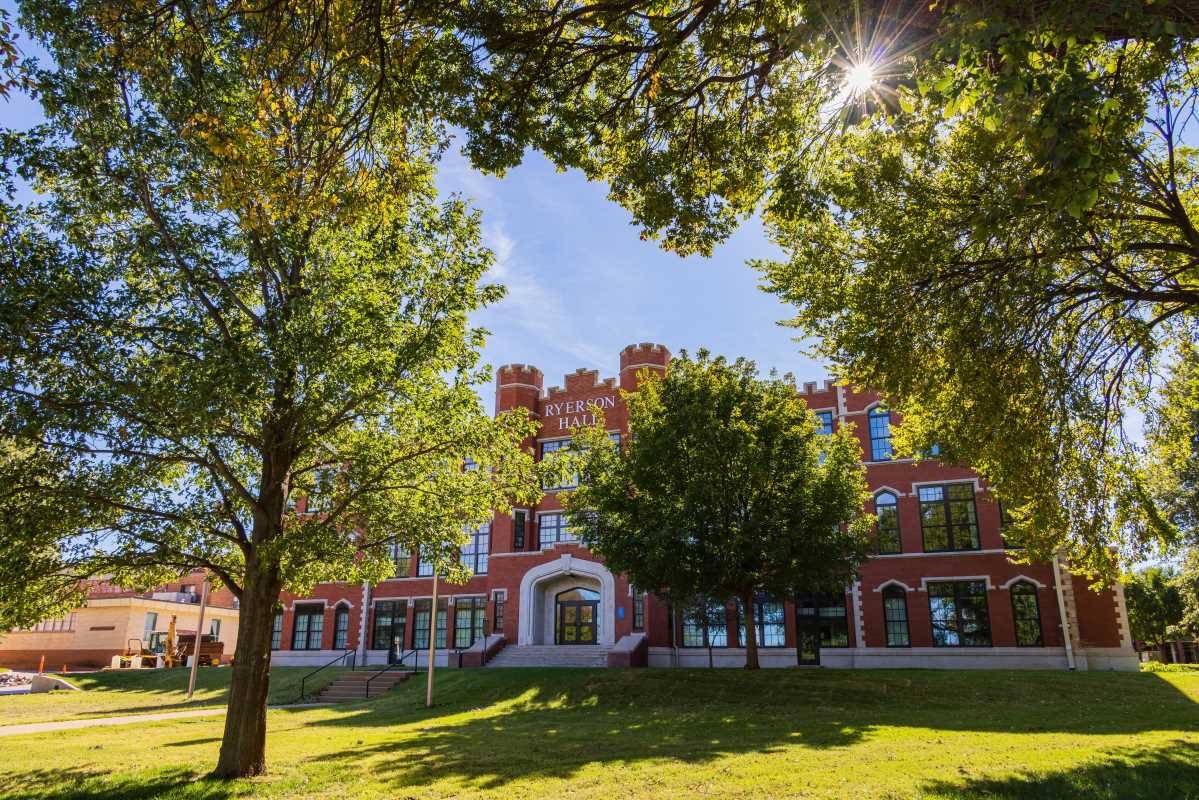College is often described as a transformative time, a unique period of intense learning, personal growth, and newfound independence. As higher education professionals, we see firsthand how students navigate this journey. Our role is not just to facilitate academic learning but to guide them toward a holistic experience that prepares them for a successful future. The advice we offer can shape how students approach their time on campus, encouraging them to look beyond the classroom and embrace every opportunity.
This article provides actionable insights and practical tips you can share with your students. We'll cover everything from academic success and career preparation to personal well-being and social engagement. The goal is to equip you with the language and concepts to help students make their college years truly count.
Beyond the Syllabus: Redefining Academic Success
For many incoming students, college academics seem like a simple extension of high school: attend class, do the homework, and pass the exams. It's crucial to help them understand that higher education offers a much richer academic landscape. Success isn't just about the final grade; it's about intellectual curiosity and deep engagement with the material.
1. Go to Office Hours (Even If You Don't Have a Question)
Encourage students to visit their professors during office hours. This can be intimidating, but it's one of the most underutilized resources on campus. Frame it not as a place to get answers, but as a space for conversation. They can discuss a topic from class they found interesting, ask about the professor's research, or seek advice on career paths in the field. These interactions build valuable relationships that can lead to mentorship, research opportunities, and glowing letters of recommendation.
2. Treat the Library as More Than a Study Spot
Modern university libraries are dynamic hubs of knowledge and support. Urge students to get to know their librarians. Subject-specific librarians are experts in navigating academic databases and can save students hours of frustrating, fruitless searching. Libraries also host workshops on citation, research methods, and digital literacy. By learning to use these resources effectively, students develop critical research skills that will serve them long after graduation.
3. Embrace Interdisciplinary Learning
A student's major doesn't have to be a silo. Promote the value of taking electives outside of their primary field of study. An engineering student might discover a passion for ethics, or a history major could find that a statistics course provides a powerful new lens for analyzing the past. This cross-pollination of ideas fosters creativity, critical thinking, and a more well-rounded perspective. It also helps students connect disparate concepts, a key skill for complex problem-solving in any profession.
Building a Bridge to the Future: Career Development from Day One
The connection between college and career is more important than ever. However, students often wait until their junior or senior year to start thinking about their professional future. We can help them see career development as an integrated part of their entire college experience, starting from their first semester.
1. The Career Center is for Everyone, Not Just Seniors
Many freshmen and sophomores believe the career center is only for resume reviews and job fairs. Challenge this misconception. Encourage first- and second-year students to visit the career services office for exploratory conversations. They can take career assessments, learn about different industries, and create a four-year plan that aligns their academic choices with potential career goals. Early engagement helps demystify the job search process and reduces last-minute panic.
2. Internships: Quality Over Quantity
Students sometimes feel pressure to accumulate as many internships as possible. Advise them to focus on securing one or two high-quality, relevant experiences instead. A meaningful internship allows a student to take on real responsibilities, contribute to projects, and build a professional network. It should be a learning experience, not just a line on a resume. Guide them to seek opportunities that align with their interests and offer mentorship.
3. Develop "Soft Skills" Intentionally
We know employers consistently rank skills like communication, teamwork, problem-solving, and adaptability as highly desirable. Students, however, may not realize they are developing these skills every day. Help them connect the dots. A group project isn't just about the final presentation; it's a lesson in collaboration and conflict resolution. A part-time job in customer service builds communication and problem-solving abilities. Encourage students to reflect on their experiences—both inside and outside the classroom—and to articulate the soft skills they've gained.
More Than a Student: Prioritizing Personal Growth and Well-Being
The academic and social pressures of college can be immense. It's easy for students to get caught up in the hustle and neglect their own well-being. A successful college experience is one that is sustainable, and that means prioritizing mental and physical health.
1. Schedule "Nothing" Time
Students often have calendars packed with classes, study sessions, and extracurricular activities. This can lead to burnout. Introduce the concept of scheduling downtime with the same seriousness as scheduling an exam study session. This "nothing" time is crucial for recharging. It could be an hour spent listening to music, taking a walk, or simply doing nothing at all. Normalizing rest helps students manage stress and maintain their mental health.
2. Find Your People, Not a Crowd
The social aspect of college can be daunting. Students may feel pressured to be constantly social or to find a huge group of friends immediately. Encourage them to seek genuine connections over a large social circle. This could mean joining a small club based on a niche interest, forming a study group, or getting to know the people on their residence hall floor. Deep, supportive friendships are a key pillar of well-being and can make a large campus feel like home.
3. Utilize Campus Wellness Resources Proactively
Most universities offer a wealth of wellness resources, from counseling services and fitness centers to nutrition workshops and mindfulness classes. Yet, many students only seek these out when they are in a crisis. Promote these services as tools for proactive self-care. Frame the campus counseling center as a place to build coping strategies, not just a place to go when things are falling apart. Encourage students to explore the wellness offerings on campus before they feel they need them.
By sharing these insights, we can empower students to take ownership of their college journey. We can help them see it not as a series of boxes to check, but as a dynamic period of exploration, connection, and growth. Our guidance can help them build a foundation that supports not only academic and professional success but also a lifetime of learning and personal fulfillment.
 (Image via
(Image via





